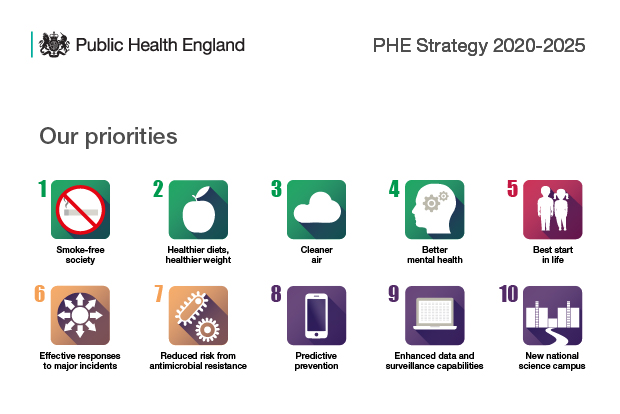
The road ahead for the public’s health is one of great opportunity, and one we must seize with all our energy.
In 2019 we have had the publication of the NHS Long Term Plan and the Government’s green paper on prevention, both setting out a vision of how we can move from prioritising treating poor health to preventing it in the first place. We will also have a renewed focus on population health through the seven new Regional Directors of Public Health, appointed earlier this year.
The recent one-year spending round marked the first year in six where the public health grant will be seeing some new money, along with a positive outcome generally for local government.
We are also now fast approaching the deadline for the NHS to become smokefree, something that matters not just because it should not be easier to smoke outside the doors of a hospital than a pub, but because we are getting ever closer to the target of a smokefree society by 2030 and we must keep up the momentum to continue the terminal decline of the nation’s biggest killer.
The strength of science and evidence
We cannot of course talk about our work and our aims without science. It is first and foremost our duty to protect people and we have today published our first Infectious Disease Strategy.
Every day our scientists’ work saves lives and we have made real and, in some cases, incredible progress. Just last week we published data showing new HIV diagnoses are at their lowest level since 2000 and cases of TB are down 43.6% since 2011.
However, as much as we continue to take steps forward, we were given a stark reminder this year that it is possible to take them back too. Our measles-free status was removed by the World Health Organization following the same strain circulating for a year with rising cases despite the fact we have an effective vaccine available.
When we think about science, we often do not think about health inequalities but infectious diseases including HIV, hepatitis and TB often most affect those in the poorest health and those least visible to services.
Disease does not stand still or respect borders and it is the work of our scientists, at PHE and in the NHS, who ensure that we continue to develop and innovate and find new ways to keep people safe and when they do get unwell, how to treat them quickly and effectively.
PHE’s new five year strategy

We have refreshed our five year strategy and have gone through an extended, evidence-based and collaborative process to identify ten areas where:
- we see major implications for public health and wider societal goals
- There is substantial scope to improve outcomes and reduce inequalities
- Our roles within the system mean that PHE is well-placed to make a significant contribution
- Our activities are likely to generate good return on investment
However, it cannot be stressed enough that there are of course other key concerns where we will continue to make our contribution and by choosing these ten it does not diminish the importance of those others.
Please do take a look at both strategies.
What we must do now is make the most of the opportunities we have to prevent poor health, continue presenting and using the best possible science and evidence and reducing inequalities wherever we can, something that is everyone’s responsibility.
You may also be interested in:
The NHS Long Term Plan: Focusing on prevention to save thousands of lives

2 comments
Comment by John Campbell posted on
Thanks. Applies to mental health also.
Public awareness is already high.
Very crowded landscape already; huge and confusing plethora of programmes, guides, etc out there.
So please don't pour money into the ground there.
(It's the NHS job (not PHE) to treat and help extant illness.)
PHE's job is prevention. What should people be doing now to prevent themselves and their children and their grandchildren from becoming mentally ill in future?
Comment by Katherine Barnes posted on
I am extremely disappointed in your comments published today in the Daily Mail about GPs and the MMR immunisations.
You are completely out of touch with what is happening in the real world of primary care .
We have already been repeatedly chasing our vaccine refusers/ non responders on a monthly basis for over 10 years !
Following out breaks of Measles in our locality this year we sent out texts to all children 18 and under who were missing one or both MMR immunisations.
I would suggest you talk to GPs about what is really happening before making future comments. These patients have fixed beliefs against the immunisations which are unshakeable. Accessibility is not the issue.
Kind regards